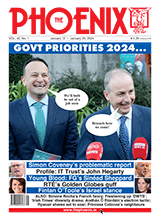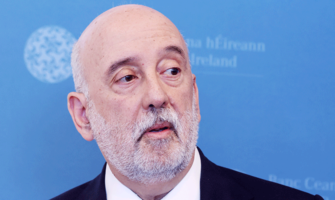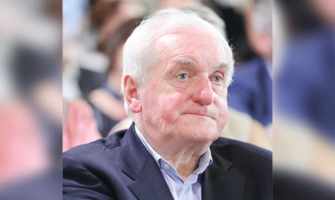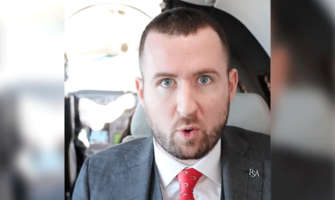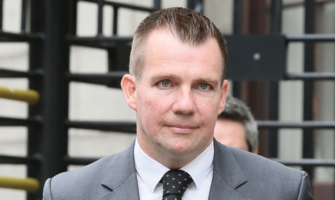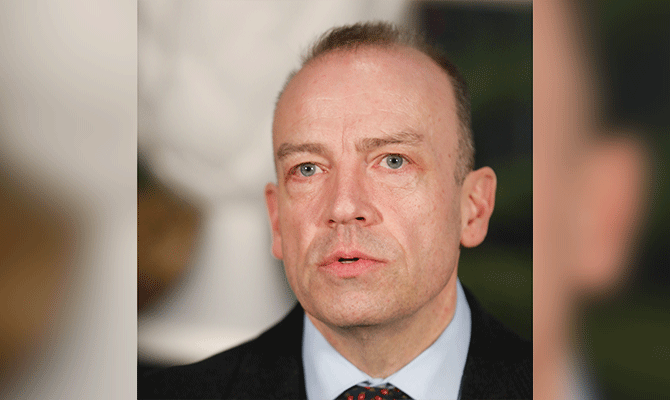
Chris Heaton-Harris
THE BACKLASH over the Irish Government’s case against the British government’s legacy act began with ex-northern secretary Brandon Lewis making a full-frontal assault against Dublin at the end of December (see p11). But south of the border, Irish Times columnist Newton Emerson last week criticised the Irish Government’s timing of its appeal to the European Court of Human Rights (ECHR) over the British legacy act. Emerson claimed that Tánaiste Micheál Martin announced the move on December 19 “in the midst of a final push to get the DUP to restore Stormont before Christmas”. He added: “It certainly appeared to be the timing of the announcement that had thrown the British side”. But Newt and his sources have their chronology all wrong.
Even if Martin had announced the ECHR move on December 19, northern secretary Chris Heaton-Harris announced the same day that talks with the DUP had concluded. But in fact Martin’s statement about the ECHR move was announced the following day, on December 20.
If Newton Emerson had read his own newspaper, he would have seen that Seanín Graham had reported on December 18 that “the DUP had ruled out a deal that would lead to the Assembly’s recall this week”.
All of this came as a shock to the body politic, with the IT’s Freya McClements reporting earlier in December that “all the ducks are lining up in the sort of row needed to get Stormont back”, although she did pose the question whether or not the DUP would go back.
Others were even more optimistic and not without reason. The deal had actually been struck by Wednesday evening, December 13, and Donaldson said the next day that the “time was approaching” to decide on whether to return to Stormont.
As word began to spread among a few key politicians and media that an agreement had been reached, senior players prepared their schedules. DUP leader Jeffrey Donaldson was due to go to the DUP officer board that Friday, December 15; he was to inform Heaton-Harris the next day of the DUP’s acceptance of the deal and the party’s return to Stormont.
Meanwhile, the British prime minister, Rishi Sunak, made plans to be in Belfast on Monday December 18 to preside, Tony Blair like, over the welcome development. And BBC political editor Chris Mason booked his flight from London to cover the historic event.
However, Donaldson could not deliver the DUP as many of its members made clear that weekend. On Monday December 18 the party ruled out the deal saying: “The DUP is condition-led not calendar-led.”
On Tuesday December 19, Heaton-Harris said that talks had concluded and the following day, Wednesday December 20, the Irish Government announced its ECHR action.
This action at the ECHR is not likely to get into the real meat of the argument until a new government is installed after the next general election, with a Sinn Féin member likely to be foreign affairs minister. That should add spice and no little fun to the court’s proceedings.





